- Get to Know
Capcom - Management
Strategy - Business Activity
Achievements - ESG-based Value
Creation - Financial Data
Non-Financial Highlight
 Intellectual Capital
Intellectual Capital

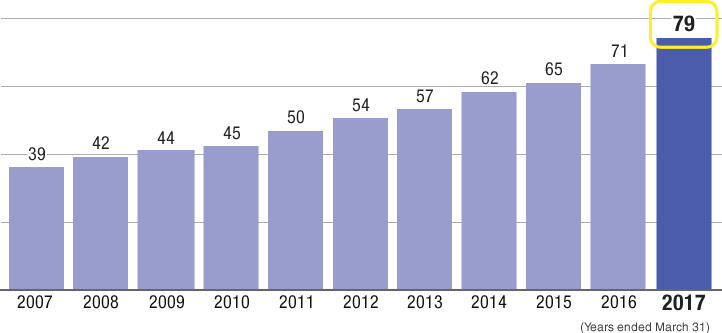
Capcom boasts world-leading development capabilities, as evidenced by our numerous intellectual properties. Our content is popular around the world, and up to now, a total of 79 titles have sold over one million units. In order to increase our brand value and profitability, we leverage this in-house produced intellectual capital across a wide range of media, including PC Online and Mobile, pachislo machines, movies and toys in promoting our Single Content Multiple Usage strategy.

Growing the Resident Evil Fan Base

Resident Evil is one of our most popular series and features games in which players utilize a variety of weapons and other items to escape terrifying situations. The latest in the series, Resident Evil 7 biohazard, has sold 3.5 million copies worldwide. This game featured a dramatic switch from third-person to first-person play, as well as highly realistic graphics made possible by the RE ENGINE. In recent years we have been working to expand the fan base of the series by appealing to a wider range of age groups with products that include high-definition rereleases of past titles for current-generation game consoles.

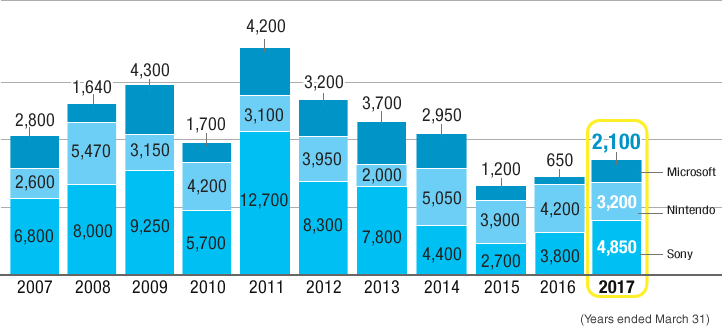
In the Digital Contents business, Capcom has established a basic "multiplatform strategy" aimed at providing content for multiple game platforms (hardware), ensuring steady sales of software for all types of hardware. Since the fiscal year ended March 2005, hardware has become increasingly diverse amid the accelerating spread of each type of hardware in various regions. By providing titles based on hardware prevalence and attributes, we maximize sales opportunities.

The RE ENGINE: a Development Tool for Higher Quality and Efficiency
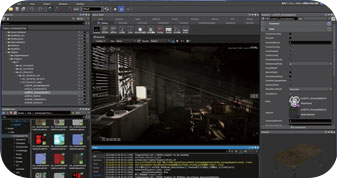
Capcom has long utilized our proprietary MT Framework engine; however, with the development of Resident Evil 7 biohazard, we also began using the new RE ENGINE to create realistic worlds for current-generation hardware. Not only has this made greater realism possible—from the texture of objects to dust motes floating in the air—but it has also enabled higher quality and more efficient game development, including reducing the testing time for program changes to one-tenth of what it was.
 Human Capital
Human Capital

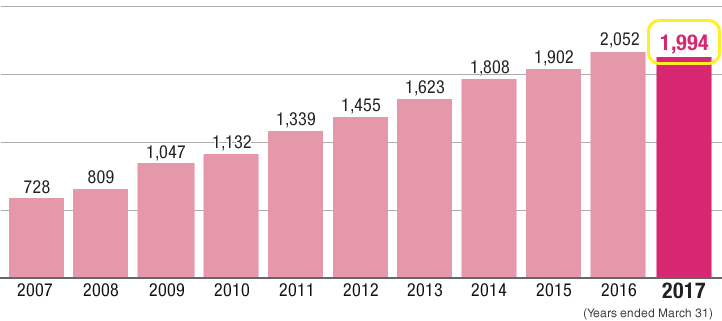
Developers engaged in the creation of content—the source of our competitive advantage—account for 70% of all Capcom employees. We are working to secure and train outstanding developers based on our desire to make the most entertaining games in the world, which has resulted in a nearly three-fold increase in developers in the past 10 years. Above all, switching to a structure focused on internal production in the fiscal year ended March 2012 to strengthen and streamline development has enabled us to hire more than 100 new graduates every year. In the fiscal year ended March 2017, that number decreased slightly mainly due to restructuring of our overseas development organization.

A Game Born Out of a Women-Friendly Workplace

At Capcom, we are working to improve the working environment for women. Women now account for around 20% of our employees thanks to introducing maternity leave, childcare leave, shortened working hours and promoting the use of these benefits throughout the company. In the year ended March 2017, we released a romance game for women and developed primarily by female employees called Toraware no Paruma. Ideas that could only come from women are found throughout this new intellectual property, and it has earned the support of many users, even taking the number one spot in paid app rankings.
 Production Capital
Production Capital

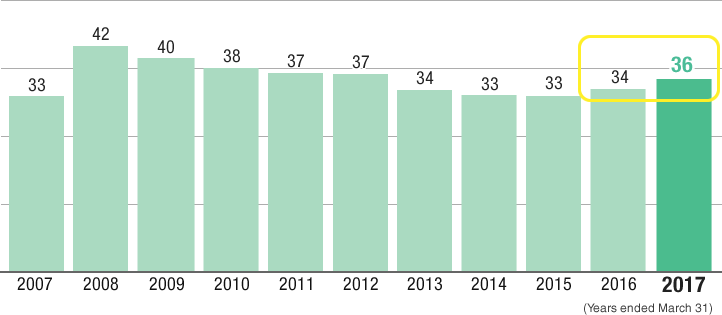
In Japan, Capcom operates Plaza Capcom amusement facilities. These are predominantly in large commercial complexes, and we have diligently followed a scrap-and-build policy to maximize our efficiency in their operations.
Due to market stagnation, we had been cutting back on opening new stores since the fiscal year ended March 2009 and focusing on improving the profitability of existing locations, but more recently we have been opening new stores in locations with high concentrations of customers to secure new revenue streams.

Cultivating New Customer Segments with Fresh Attractions
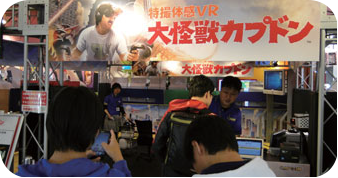
In the fiscal year ended March 31, 2017, which has been called "VR Year One," we rolled out new attractions using VR, such as Tokusatsu Taikan VR Daikaijyu Capdon, at the Kichijoji Plaza Capcom. Additionally, we have been working to create new opportunities for earnings and expand our customer base, such as opening GAME LAND Shinsapporo, a new arcade with karaoke, in March 2017. This was our first facility in Hokkaido in 18 years.
PDF download
-
Get to Know Capcom (PDF: 4.3MB/17 pages)







